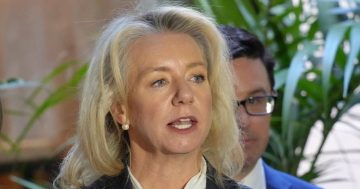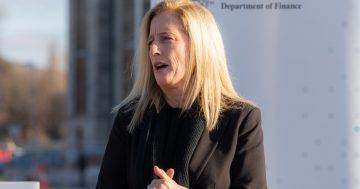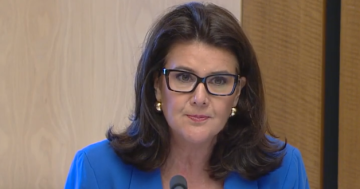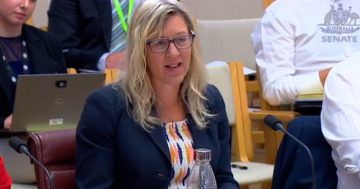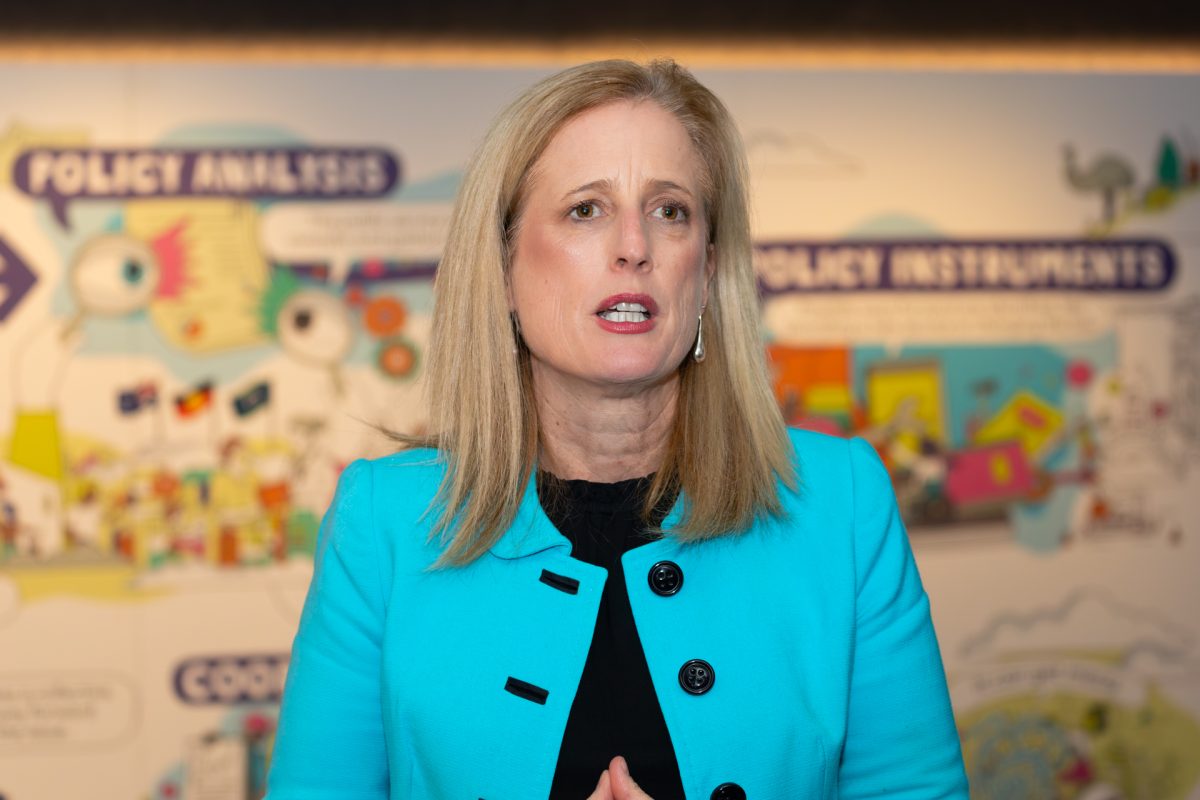
Public Service Minister Katy Gallagher might introduce standardised respect training for APS graduates. Photo: Michelle Kroll.
Public Service Minister Katy Gallagher wants to introduce a standardised training curriculum for young people entering the APS graduate program, in light of revelations some male interns joining the Infrastructure Department created a ”hotties” list rating their female colleagues.
The ”hotties list” eluded the department’s bosses, who believed nonetheless that one was made by a group of young males in the graduate intake.
The list is thought to have ranked women by their attractiveness and was circulated among the males employed in the department’s graduate program.
The issue was brought to light in recent Senate estimates hearings, with Infrastructure Secretary Jim Betts acknowledging that rumours about the list had begun circulating in March, leading to a formal complaint in May.
Mr Betts said he was disgusted by it and promised that the “severest sanctions available” would be applied if the list was confirmed and its creators were identified.
He added that the existence of such a list was degrading to women and the term ”hotness” was a disgusting phrase.
An independent investigation did not uncover the actual list.
Speaking to reporters on Wednesday (1 November), Senator Gallagher suggested attention should be turned to the induction process for the graduates to ensure respect in the workplace was stressed to them.
“The story that was raised at estimates was concerning and I don’t want that type of experience, as it was explained at estimates, to be the first experience of graduates,” the Minister said.
“Our big challenge is workforce. We’ve got to ensure that people want to work for the APS. That we keep them in the APS. And the graduates are our highest-trained level of entry into the APS.
“From what I learned at estimates – and it isn’t always great to learn things at estimates – but from what I picked up, there isn’t standardisation necessarily across the graduate program.
“And I think that’s probably something that we should have a look at to make sure everybody is getting, at the general level, the induction and talk about culture and workplace behaviour in a standardised module of their training program and that it should be done early.”
The Minister also said she would be keen to look at the gender mix of the graduate intake.
Of the current group of 35 graduates who joined the Infrastructure Department in February, two-thirds are male and are mostly aged below 30.
Mr Betts told estimates that the gender balance was nowhere near appropriate for his department.
“We will never have a future graduate program where the gender balance is two-thirds male and one-third female,” he said.
“It is unacceptable within a department, which is 60 per cent female overall, and among senior executive services 52 per cent female.
“We’ve learnt some lessons from this and one of those is around having gender balance at all levels and in all cohorts.”
Mr Betts said several sessions had been held with the graduates, including with them all together and separately with just the women.
The graduates all received training in the APS’s values system and respect at work.
Original Article published by Chris Johnson on Riotact.


